By Dr. Padmavathi Narasimhan
The Indian Theatre staged the play ‘Bheemannana Maga’ at Kalamandira in city on Dec.27. The play is based on Raghavendra Bhimsen Joshi’s ‘Gaanaaraachye pora Atmakathana’ translated into Kannada from Marathi by Shubhada Aminabhavi. The play is an autobiography of Raghavendra Joshi, son of Bhimsen Joshi and also a biography of the music legend Bhimsen Joshi.
Raghavendra Joshi is the eldest son of Sunanda Katti, the first wife of Bhimsen Joshi. He is gifted with the talent of identifying water disposition. This passion led him to giving up his job and his wife supported him whole heartedly.
The play is a faithful reflection of his book. Being a witness of the various incidents occurred in his father’s life, Raghavendra (Dhananjay) shares the story, narrating the strong bond between his father and himself. The play opens with ‘Bhimsen Joshi’s popular Dasara Pada ‘Enna Paliso Karunakara,’ with the appearance of all the actors and actresses on stage.
The story begins with the screaming of Sunanda’s wail calling out to her six-year-old son Raghavendra ‘Alas! He has strangled my neck!’. Bhimanna (That is how Raghavendra calls his father) is trapped by another woman whose name is only referred to as ‘she’ or ‘her’ by the author (narrator). Bhima has used his wife’s gold chain to make a ‘mangal sutra’ for the other woman.
Bhimanna took to music at the age of eleven. Furious at his poor performance at school, the father beats him. And the mother curses her own fate. But Bhimanna’s determination is steadfast. ‘You will see how I will mint money with my music!’, is his reply.
As a grown up, Bhimanna is attracted to Sunanda, privately gifts her with creams and talcum powder and appeals to her, ‘Will you marry me? Please do not say no! (Olle annabyada).’ He marries Sunanda (Shylaja) lovingly called Nandi by him and begets three children. The family is happy till the entry of Vatsala Mudholkar (Vinaya Janardhan) in Bhima’s life. Taken by her beauty, Bhima plunges into an irreparable decision of leading his life with her. Like Uttanapada Bhimanna begins to treat Sunanda and his legitimate sons with scant respect, which gets unbearable to the kids. But Sunanda continues to love her husband. Bhimanna is once down with Typhoid. Sunanda takes care of him lovingly and Bhima recovers his lost voice.
But Sunanda’s goodness leads her to become a house-maid in her own house. She is deprived of family protection and financial security. Bhimanna earns name and fame, but pleads innocence with regard to the injustice done to his family as he is too scared of his mistress. Raghu, however, has no complaints against his father, as he attributes everything to the other woman — the mistress. Bhima is all repentant after a few years of suffering. He cries on his father’s shoulder, relating his misery. But the father’s words are firm — ‘It is YOUR doing. You need to help yourself.’ Bhimanna is sick towards the end of his life. Raghu is constantly in touch with him and visits him at his hospital regularly. He sobs bitterly on hearing the demise of his father.
Little joys — when a radio is brought to the house, when Raghu is gifted with a bicycle from his father and Bhimanna dancing to the tunes of Alabela form the joyous moments in the life of Raghu and humour part in the play.
The sweet texture of the local dialect is maintained throughout the play. The voice of Nitin Rajaram Shastri, violin background by C.N. Tyagarajan suiting the moods of the play, flowing melody of flute by Sameeer Rao (who has also music-directed the play) and suitable harmonium saath by Sri Ram Bhat throughout the play was apt and soothing. Director H.S. Umesh has given a vigorous training of six months to all the actors, which was reflected in the play. Harish in the role of Bhimsen Joshi did good justice to the role. Even the lip movement in the singing part was astonishingly synchronising, considering which a couple more songs could be added to the play. Dhananjay managed both the roles of the son and the narrator beautifully. The costumes were simple and simple techniques with the usage of minimum tools like chairs to show a driven car were highly appreciative.



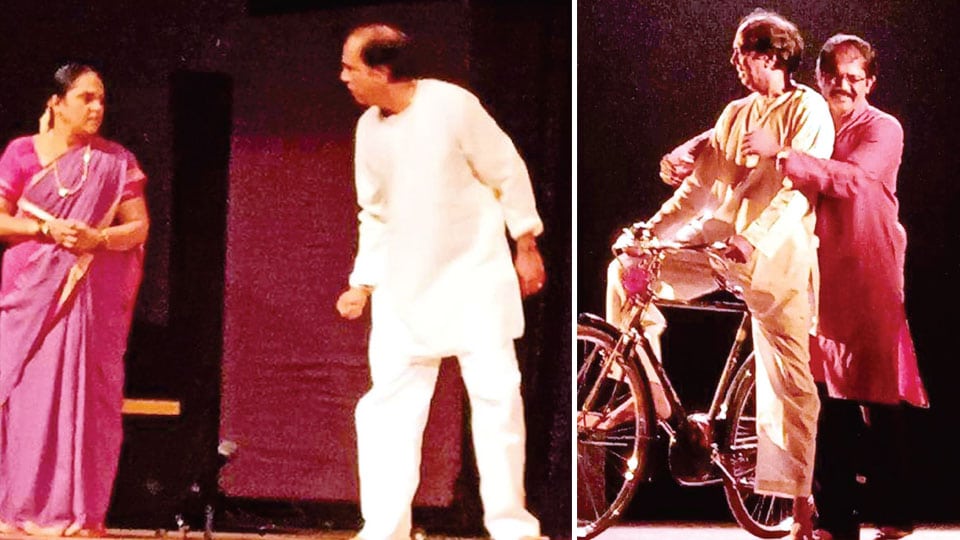
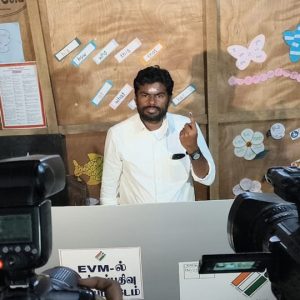
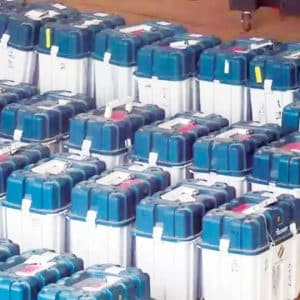
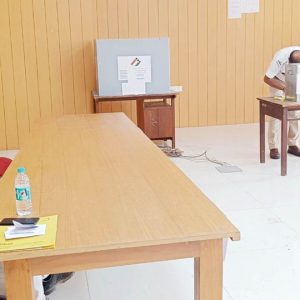
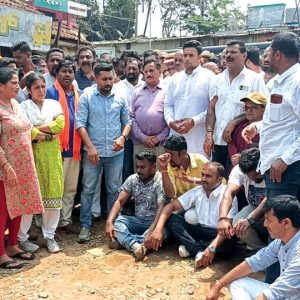
Recent Comments